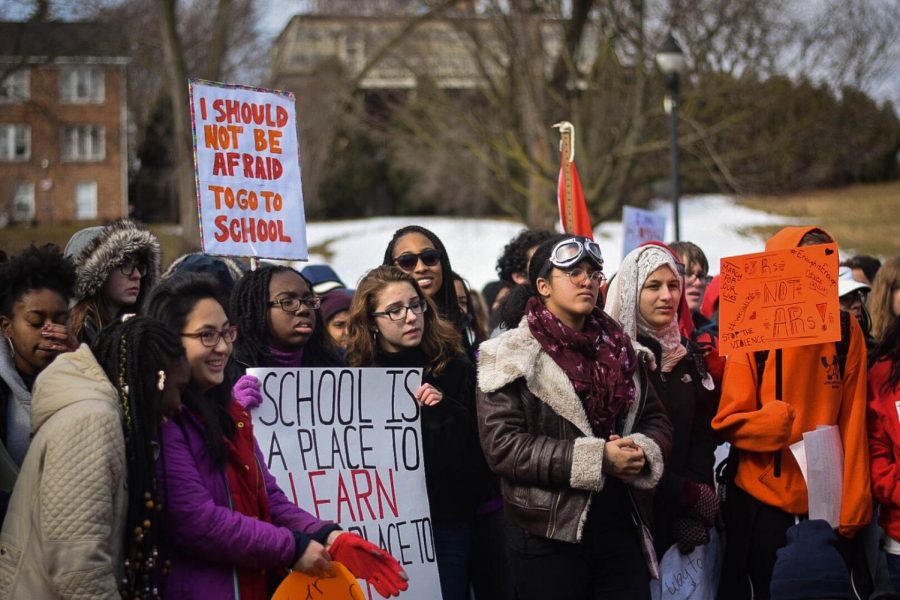The Fierce Urgency of Now
When Reverend Martin Luther King Jr. first spoke of the “fierce urgency of now” in April 1967, he did so in protest of the ongoing war in Vietnam, hoping to spur Christian-Americans to join the effort against the U.S. government-led occupation. During the speech, King detested procrastination and berated it as the “thief of time” and cause of lost opportunity. He insisted that “there is such a thing as being too late,” and said that “over the bleached bones and jumbled residue of numerous civilizations are written the pathetic words: ‘too late.’” King viewed the American occupation in Vietnam as a return to colonialism and the subjugation of the Vietnamese people by means of the same injustices suffered by African Americans. He could not idly stand by and let these injustices come to pass.
While the ebb and flow of time has washed over that distant past, King’s principle of “the fierce urgency of now” is more relevant than ever. America’s political climate is in turmoil in the wake of the murder of 17 people at Stoneman Douglas High School. Students looked-on as 14 of their peers and 3 teachers were gunned down by Nikolas Jacob Cruz, a former student and member of the school’s varsity air rifle team. Wielding an AR-15 — a semi-automatic version of the US military’s M16 Rifle, used in operations since 1964 — Cruz triggered the fire alarm and indiscriminately fired upon his former classmates and teachers as they scrambled from their rooms. Peter Wang, a freshman student and JROTC (Junior Reserve Officers’ Training Corps) cadet, was shot after holding the door for his classmates and teachers to escape the gunfire. Later that day, he died in a local hospital, his body laden with bullets.
Wang’s urgency to action saved many lives that day at the cost of his own. While he was posthumously awarded the ROTC Medal of Heroism, I only wish his sense of urgency had been matched by the lawmakers of this country after the Columbine High School Massacre in 1999, when two students, Eric Harris and Dylan Klebold, fatally shot 12 students and 1 teacher during the school’s lunch break; or after the Virginia Tech Massacre in 2007, or when senior Seung-Hui Cho fatally shot 32 people with two handguns he purchased online, filled with bullets ordered from Ebay; or after the Sandy Hook Elementary shooting in 2012, when Adam Lanza fatally shot twenty young children and six teachers; or after the four other instances this year, as of February 2018, in which a shooting with student casualties has occurred on a school campus.
While gun-policy reform has been a long discussed topic among the political representatives of our country, the matter has followed the same cyclical pattern for years: a gun-related tragedy occurs and young lives are lost; outrage sweeps the nation and fear dominates the youth demographic; calls for reform commence and gun control debates enthrall the general public; and, in matter of months, the wrath of the would-be reformers subsides and they return to normality, while despair continues to haunt the scarred victims and families.
The effect of gun control in other countries is well documented. And yet, the facts and statistics seem to be unconvincing to many of our current and former lawmakers.
How many more massacres must there be for change in this country?
How many more memorial services? How many more hashtags, organizations, and movements for change? How many more plaques, monuments, and grave.sites? How many more calls for reform, political bickering, and indecisive moments?
How many more grieving mothers and fathers have to attend their own children’s funerals?
How many more innocent kids have to die?
Lethargy and fatigue have taken our country hostage in this endless cycle of death and fear. However, the opportunity to cease this terrible violence is upon us.
As King said, “We are now faced with the fact that tomorrow is today.” There is never a more critical time than now, and today is the moment to act. Not tomorrow, or the day after, or the day after that.
For the US to progress, we must buy into Jean-Jacques Rousseau’s “social contract,” and relinquish our natural right to own military style weapons for society’s betterment as a whole. The right to own an assault-style firearm enjoyed by the minority is obsolete in the face of increased safety and ease of conscious for the majority.
Reach out to your local congressman, and let them represent you by conveying your opinions on gun control. Advocate for the movement to end gun violence by, instead of arming ‘a good guy’ with a weapon, disarming them. Advocate for a movement that the Reverend Martin Luther King would approve of: one that preaches non-violence above all else, and understands the sacredness of life. Advocate for the advancement of life, rather than for a tool of death.
We are confronted with the “fierce urgency of now.”
How will we respond?
“This is the calling of the sons
of God, and our brothers wait eagerly for our response. Shall we say the odds
are too great? Shall we tell them the struggle is too hard? Will our message be
that the forces of American life militate against their arrival as full men,
and we send our deepest regrets? Or will there be another message, of longing,
of hope, of solidarity with their yearnings, of commitment to their cause,
whatever the cost? The choice is ours, and though we might prefer it otherwise
we must choose in this crucial moment of human history.”













